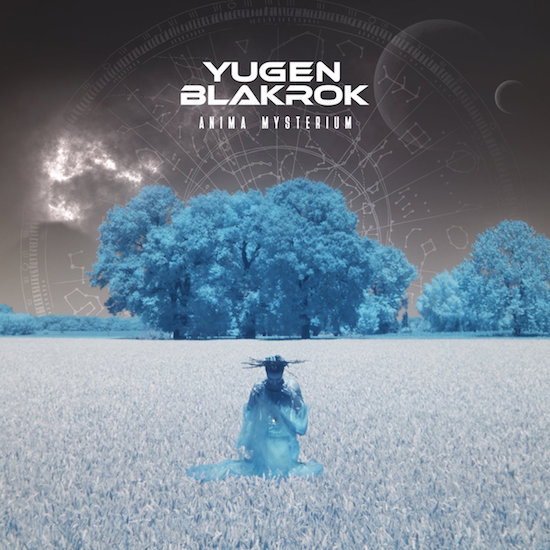Astrology has become something of a trend lately – not long ago, any talk about your Rising Sign would’ve been met with eye-rolls, but we’re at a point where it’s hit the white western mainstream (and, ergo, been commodified). Spotify has official zodiac playlists; Urban Outfitters sells £26 T-shirts with your star sign on; pop-up shops in Boxparks offer necklaces with zodiac pendants.
But mysticism and the cosmic have traditionally been spaces for those othered or marginalised – in a similar way to afrofuturism, they are ways of looking beyond the present world order, of gaining hope and a sense of control beyond colonialist ‘tradition’. So it feels important for these ideas and practices to retain their myriad roots, to not just be co-opted or branded in order to sell something.
All of which is to say, it feels good and makes sense that underground South African rapper Yugen Blakrok’s work luxuriates in references to retrograde Mercury, tarot and the cosmos. Because she’s not doing it to be trendy, and because she’s an artist who is based away from the global north.
The Eastern Cape rapper broke through into this part of the world last year following a feature on Kendrick Lamar’s phenomenal Black Panther OST – a score which was almost as much of a pop culture moment as the film itself. It was a movie that reignited mainstream conversations about afrofuturism, and TDE brought in a handful of South African artists – Babes Wodumo, Sjava, Saudi and Blakrok – for the soundtrack.
Blakrok’s verse on ‘Opps’ with Vince Staples and Kung-Fu Kenny himself was thrilling. Commanding, tongue-twisting, intricate and husky, she stood out. And that’s the thing – she thrives in her own lane, regardless of any cool Hollywood moment. She’s been on the scene for over a decade (largely along with her go-to producer Kanif), crafting surreal, psych-tinged soundscapes and contemplating enigmatic mystic imagery on her first album, 2013’s Return of the Astro-Goth, all with that distinctive voice.
Anima Mysterium is the follow-up, and it’s clear that much greater media attention hasn’t pushed her into something more palatable. “I misread the rules and made my own like a pagan,” she says on the proggy post-apocalyptic ‘Monatomic Mushroom’. Overall, this album feels less melodic than her first – it’s perhaps less boom-bap and more straight-up beguiling trip-hop (though there are definitely moments that recall the more leftfield moments of a classic hip-hop album like The Score). There are moments too where the instrumentation recalls Portishead, and others where it’s full-on Crazy Town’s ‘Butterfly’ – which is kind of great, actually? But definitely not in-keeping with the current, fashionable end of psych-tinged pop à la Tame Impala, Travis Scott or A$AP Rocky.
Indeed, the whole record is all swirls, strange and meandering, with tracks like opener ‘Gorgon Madonna’ using DJ scratch effects, a wailing trumpet and ominous guitar. Atop it all, Blakrok spits forth rhymes about solar systems, Greek gods, consciousness, energies, and ancient shapes and symbols.
‘Hibiscus’ is a chaotic, enthralling waltz of flute and sublime percussion met with a tremulous feature from The Historian Himself; ‘Carbon Form’ finds Blakrok ferocious over spacious, spangly production that makes it feel like she’s sitting on the captain’s chair of her starship; the drums on ‘Metallik Crow’ sound like they belong on a stadium-rock anthem.
Add to these sonics lines like “I whisper to that dangerous silence inside the witching hour” on ‘Ochre’, and the album pieces together as something oddly, darkly seductive. There’s a rage burning beneath its surface, threatening to burst through, but it’s a feeling placated by Kanif’s foggy, far-out production.
Anima Mysterium makes you engage with its cryptic nature without necessarily giving you any answers. Yugen Blakrok isn’t trying to sell you the myth or the mysticism of astrology et al, it’s just a sphere she exists within; it’s the space she views the world from. She doesn’t explain the codes, she only presents them. And she subverts and mutates rather than pandering to expectations of what a TDE-cosigned rapper ought to sound like. In that way, she stands in a lane disinterested in the fads or fashions of the west – and she’s all the more intriguing for it.


